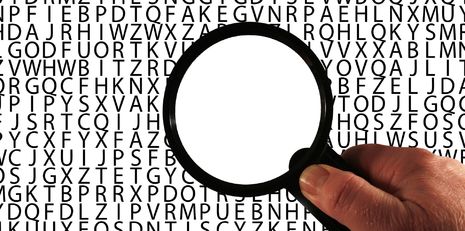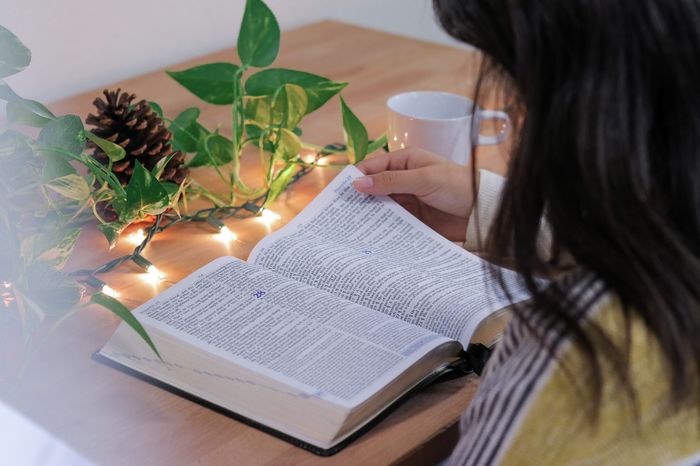Which language might one lose? Probing into bilingual aphasia
Yan-Yi Lee describes the complications of aphasia in bilinguals and explains whether bilingualism may help lessen the effects of aphasia.

In 2018, my childhood dentist — a Taiwanese man who had spent over four decades working as a dentist in Tokyo — completely lost the ability to converse in Japanese. This came as a shock, as there was no doubt he had previously been absolutely proficient in the language. A few months later, he would recuperate his Japanese only to lose it again after some time. He showed similar struggles with his mother tongue Mandarin, albeit less severely. We later came to the understanding that he had unfortunately suffered from aphasia, a condition where people literally become “at a loss for words” and unable to communicate, despite preserving their original intellect. In the aftermath of this, I felt the urge to research current advances in treating this disorder, but was taken aback by how little we really know about aphasia and in particular, bilingual aphasia.
Aphasia is much more common than Parkinson’s disease in the UK, but less commonly discussed in the general public (much like in other parts of the world). Aphasia is an acquired disorder and it occurs as a result of brain injuries, stroke, brain-related cancer, and even trauma. It can also emerge as a category of frontotemporal dementia, otherwise known as Primary Progressive Aphasia (PPA). By the 19th century, scientists had arrived at the initial understanding that aphasia happens when injuries heavily affect the brain’s Broca’s or Wernicke’s areas — cerebral regions said to govern speech production and comprehension respectively. However, with the invention of advanced medical technologies, neuroscientists have come to see how the brain encompasses an incredibly large expanse of neural networks, and the development of aphasia is most probably associated with complex damages beyond these two areas as well. Depending on various factors, aphasia can manifest itself in different forms, with common ones being fluent and non-fluent aphasia.
“Researchers also studied how the very design of a language may play a role in how quickly a patient recuperates.”
What Happens to Language Processing in Bilingual Aphasia?
As aphasia affects one’s ability to use language, a natural question that arises hence concerns how aphasia affects the workings of bilingualism (and in the same vein, multilingualism). Which language might one lose — the mother tongue? The non-dominant language? Or both? And in the case that a language gets lost, how long would it take to recuperate it? Researchers who aim to answer these questions are still hard at work at the moment, given how the brain itself is incredibly challenging to study. Notwithstanding the recent advances in neuroimaging technology, we have yet to better understand the brain-language relationship — whether different neural pathways get involved when processing different domains of language (e.g. semantics, syntax, phonetics) and whether our dominant/non-dominant languages are stored differently in the brain.
What we do know at this point is that bilingual aphasiacs are often diagnosed with the same categorisation of aphasia for each language they know (i.e. fluent/non-fluent), but the road to recovery for previously acquired languages depends on a variety of factors. The extent of immersion and proficiency in previously acquired languages could be one such factor, with new research suggesting that inhibition of a non-dominant language may lead to higher semantic competition and hence, more impaired lexical retrieval. Researchers also studied how the very design of a language may play a role in how quickly a patient recuperates — a discovery that would help professionals plan therapies more effectively. In a study of bilingual aphasiacs with parallel impairment, it was observed that grammatical disorders were linked to specific structures of a language. Similarly, scientists also discovered that Turkish speakers with Broca’s aphasia did not produce many agrammatical structures — a phenomenon attributed to how grammatical inflections work in Turkish. Aside from this, there is reason to conjecture that the type of injury incurred in the brain (cancer-related aphasia, accident-related aphasia, etc.) could also account for which areas get affected and how previous languages could be recuperated — although again, this could only be confirmed when the scientific community knows more about language storage in the brain.
“While bilinguals are equally prone to acquire aphasia as monolinguals, some scientists observe that bilingualism could help alleviate the effects of aphasia to a certain extent in the case of poststroke aphasic patients.”
Does Bilingualism Lessen the Effects of Aphasia in Any Way?
A point that intrigues many is whether bilingualism may help aphasic individuals in any way. This curiosity stems from how bilingualism has been said to be beneficial for neurodevelopmental conditions such as autism, or how bilingualism has been said to delay the onset of neurodegenerative diseases such as dementia and Parkinson’s. While bilinguals are equally prone to acquire aphasia as monolinguals, some scientists observe that bilingualism could help alleviate the effects of aphasia to a certain extent in the case of poststroke aphasic patients. In another recent study researchers compared the performance of bilinguals and monolinguals on cognitive control tasks and surmised that the cognitive reserve cultivated by bilingualism could offer protective mechanisms for adults with aphasia. While this might sound like great news, it is important to note that studies that produce such results are relatively few in number so far. Furthermore, seeing how the data of these core studies were garnered mainly from cognitive tests, results that endorse the usefulness of bilingualism in lessening the effects of aphasia are mostly inductive and somewhat conjectural for now.
While much remains to be known about the brain and how it affects bilingual aphasia, it is possible to critically evaluate current scientific data for better-informed treatments and well-being support. I would also argue that public awareness of aphasia and its causes are of paramount importance (for example, never underestimate the power of a helmet in preventing aphasia!). After all, if scientists are so keen to treat aphasia, then we all should be equally eager to prevent it.
 News / Uni Scout and Guide Club affirms trans inclusion 12 December 2025
News / Uni Scout and Guide Club affirms trans inclusion 12 December 2025 News / Pembroke to convert listed office building into accom9 December 2025
News / Pembroke to convert listed office building into accom9 December 2025 Features / Searching for community in queer Cambridge10 December 2025
Features / Searching for community in queer Cambridge10 December 2025 News / Uni redundancy consultation ‘falls short of legal duties’, unions say6 December 2025
News / Uni redundancy consultation ‘falls short of legal duties’, unions say6 December 2025 News / Gov declares £31m bus investment for Cambridge8 December 2025
News / Gov declares £31m bus investment for Cambridge8 December 2025









